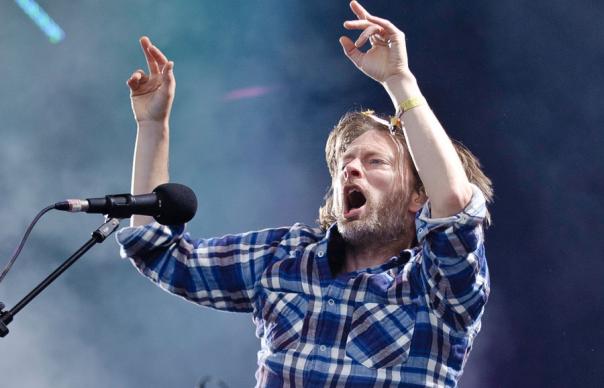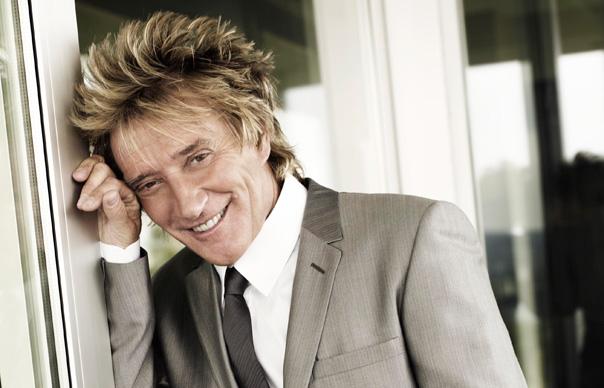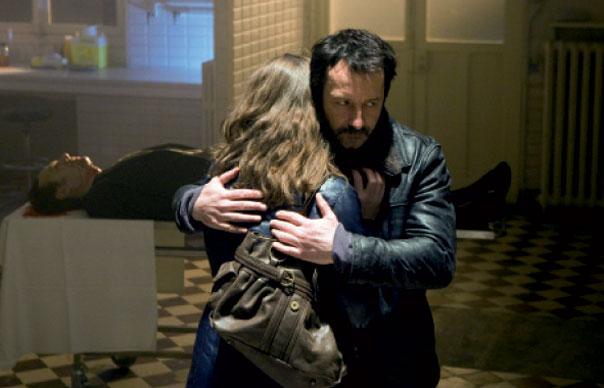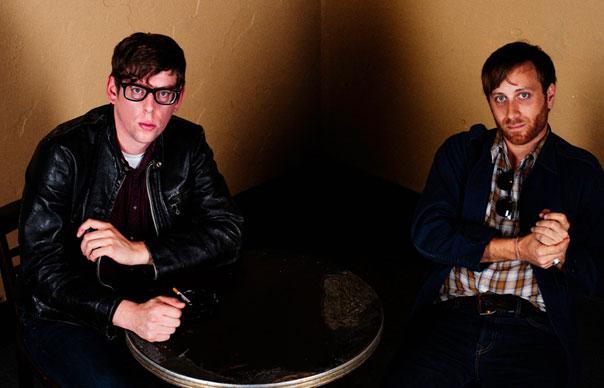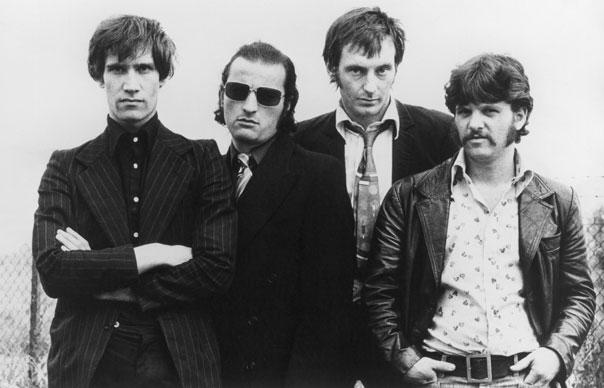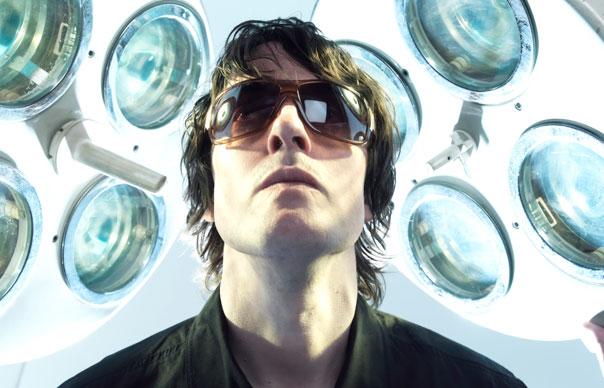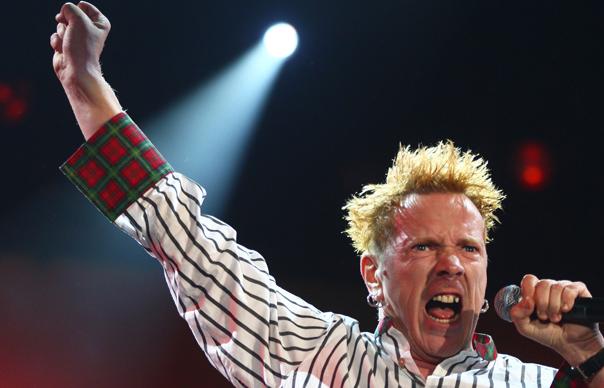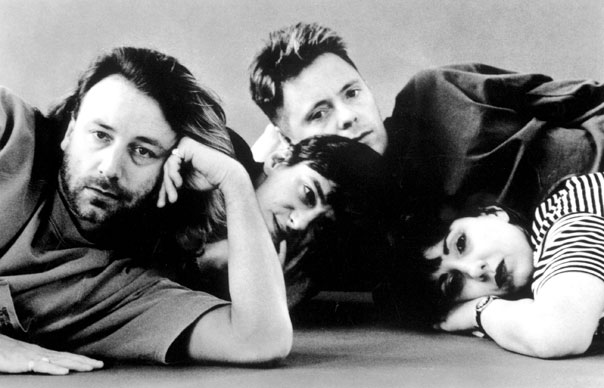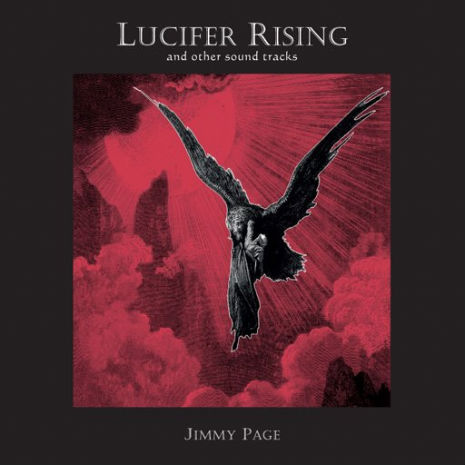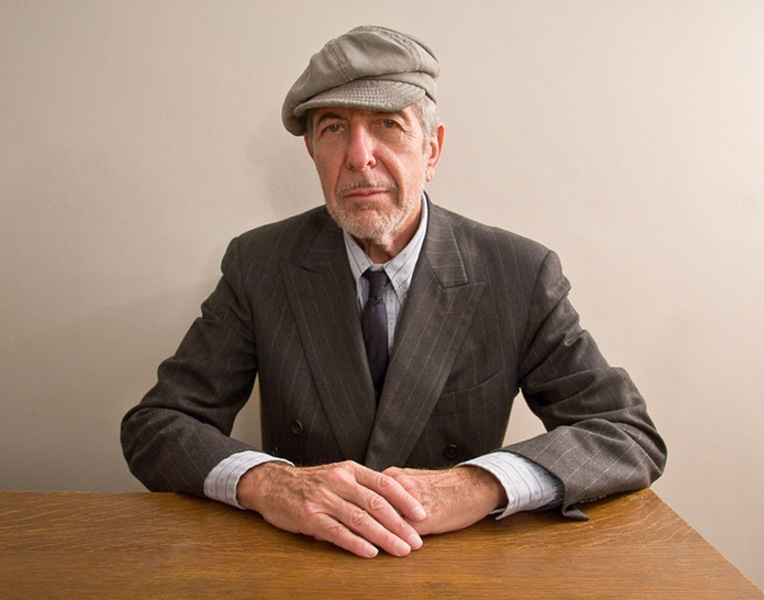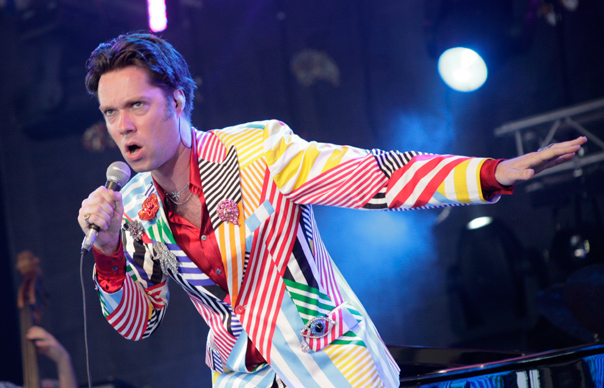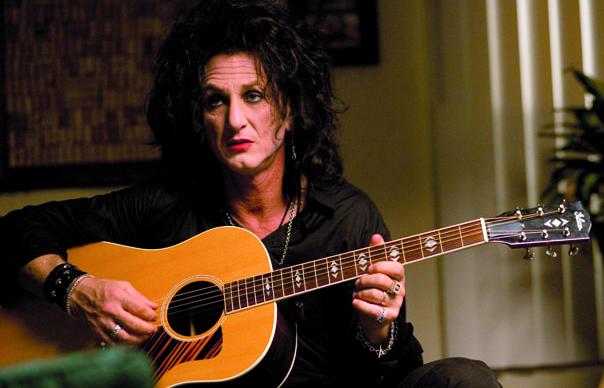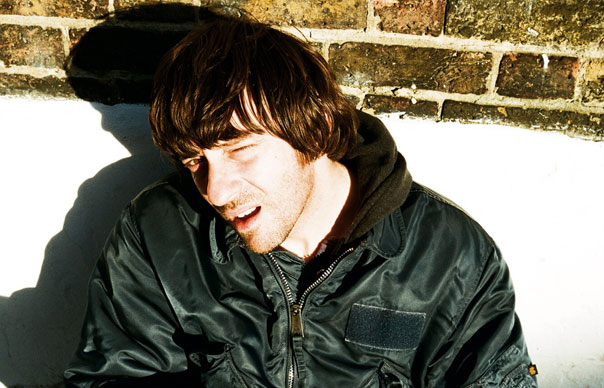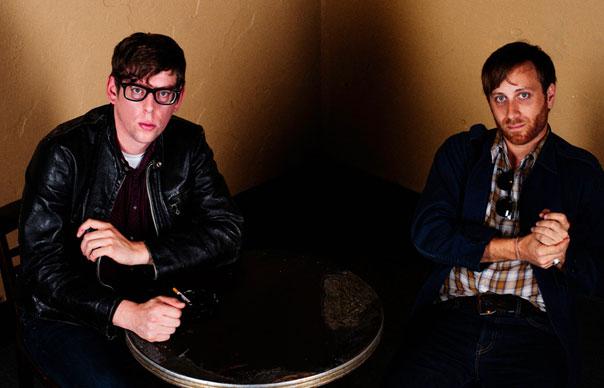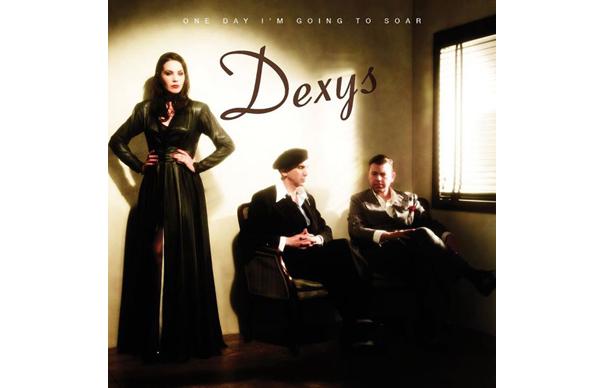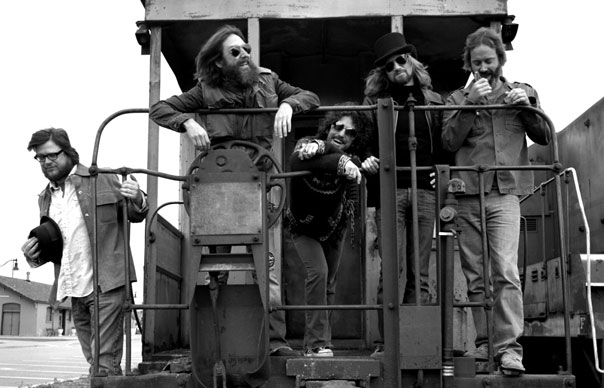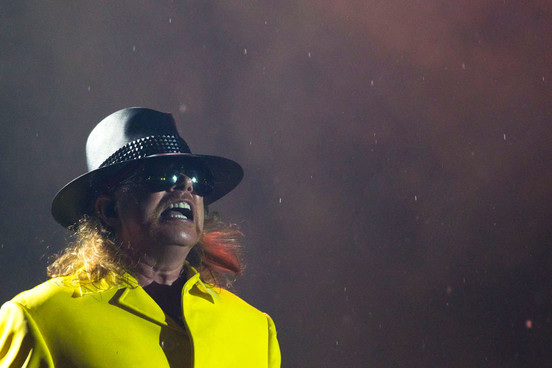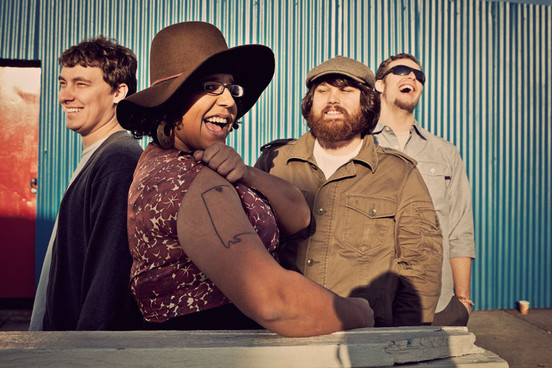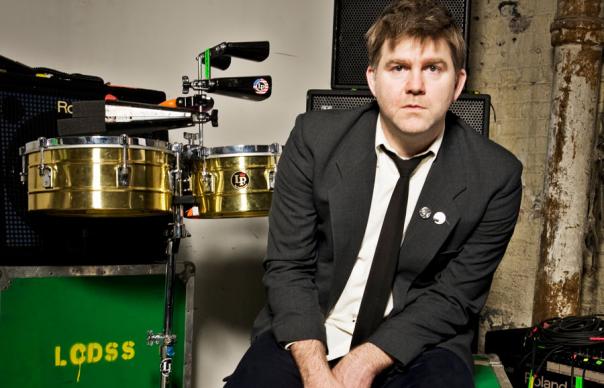Graham Coxon’s new album A+E is reviewed in the latest Uncut (May 2012, Take 180), out now – so we thought we’d revisit the last time the guitarist featured in our pages. In 2009, John Robinson met the guitarist at his Camden home to find out about his folk-infused solo album The Spinning Top, and hear all about the little matter of his old band’s reunion… Picture: Essy Syad
__________________________
On entering Graham Coxon’s house in an affluent corner of London’s Camden Town, the suspicion gradually mounts that the home of the Blur guitarist has been taken over, without his knowledge, by students. On the floor, books lie open, with plates and mugs at their side. An electric guitar leans, neglected, against an amplifier. A laptop hums, unwatched.
As you make your way downstairs to the kitchen, however, the feeling subsides. There, in a domestic space that speaks of healthy living (a selection of vegetables, grown in the garden of his country home), good taste (several Eames chairs), and a recently purged music collection (all CD storage lies empty, save a copy of Bob Dylan’s Together Through Life), we find Graham Coxon, the rightful occupant of the house. Contrary to appearances, he’s been up for hours.
“Sorry about the mess,” he says, rubbing his eyes, as his girlfriend hurriedly wipes surfaces, and makes the tea. “It’s been a bit of a busy weekend.”
If he pauses to reflect on it, in fact, it’s been a bit of a busy year. To start with, there has been work associated with his 2009 album The Spinning Top, a pleasant and folky recording nominated for the Uncut Music Award, which has made explicit the links between Coxon and British folk that his work with Bert Jansch – and cover art for Kate Rusby – has previously hinted at. Then (“completely by accident”) there came an engagement to play guitar on Grace/Wastelands, Peter Doherty’s first solo album – a job he thinks he was offered because his presence “might make Peter behave a bit in the studio”. All round, it’s a spate of activity that has taken the guitarist by surprise.
“One of my most busiest and most successful years has also been one of my most confusing and maddening,” says Graham, having retrieved jacket and cigarettes from another room, and settled at the kitchen table. “I thought I’d just be quietly putting an album out and doing a few shows, but it’s been a lot more than that. I don’t quite know what’s going on from week to week.”
Among the most surprising – and exciting – features of Coxon’s year, by any measure, has been the renovation of his friendship with Damon Albarn, and his subsequent rejoining of Blur, the band he was dismissed from at the end of 2002, when he entered rehab on the day the band were due to begin recording their most recent album, 2003’s Think Tank.
The summer of 2009, duly, has been coloured by Blur-based epiphanies: cosy secret shows, massive gigs in Hyde Park, and a triumphant set at Glastonbury. Over 10 years previously, Graham had added a topline melody (“Oh my baby/Oh my baby…) to “Tender” – the emotional gospel song that begins the band’s 13 album. At Glastonbury, this year, he got it back.
“That huge army: the noise they make,” Graham says. “To have one of your little melodies sung back over and over again… After all that time, when I’d been the troublesome one who wasn’t in the group any more. Then I came back, and they were singing my bit. It was nice. I was grinning from ear to ear…”
For all his achievements so far this year, it’s fair to say that the world of Graham Coxon is one that remains characterised by a degree of uncertainty and confusion. Now 40 – registered only by a tiny streak of grey in his enduring mop – he is undoubtedly successful, but remains uncertain as to quite where he fits. As enjoyable as the Blur shows were, no decision has yet been made about what the band will do next. His own solo career, meanwhile, while providing its share of highpoints – say, the new wavey tunes of 2004’s Happiness In Magazines or this year’s The Spinning Top – has been offering diminishing returns. While he made two albums for EMI, he’s now on the indie Transgressive, clearly weighing up the changing music marketplace, and even whether or not he should persevere.
“When I’m at my most pessimistic I wonder if there’s enough room for me,” says Graham, “and I wonder, ‘What is the point, actually?’ It’s difficult to discuss without sounding really dramatic. But I wonder why people like music these days: it’s not like it used to be.
“With Blur from the mid-’90s on, we had no idea that that was going to be the last hurrah of the old traditional way of doing things. The whole way record companies did things, having money to splash about. In a way it’s better, but I still don’t know what’s going on.”
Rather than dwell on the situation, Graham has seemingly made the decision to keep himself occupied. In this, an important catalyst has been longtime Blur producer (and producer of his own last three albums), Stephen Street.
Someone that Coxon refers to with evident affection (“Streety”; “Uncle Steve”), it’s been Street that helped provide Coxon with the status he acquired in 2009: gun for hire. First, Coxon played guitar on Doherty’s Grace/Wastelands, then joined the band that took the album out on the road.
“I suppose I did a similar sort of job to what I would do in Blur,” says Graham, “which was to try and absorb the song and sort of channel it with the guitar, and find something that supported the emotional drive of the song.”
With Doherty and Coxon both rehab regulars, one might imagine that these gigs were filled with the potential for disaster. As it transpired, the tour was generally a far more civilised affair.
“Peter’s good as gold,” says Graham. “He would tend to get on the bus, take his computer to bed, and watch Hancock’s Half Hour and go to sleep. I never saw him in any kind of peculiar states of mind, I only ever saw him with a Guinness. We have the same birthday, but he’s much more of a confident performer than I could ever hope to be, a lot more cheeky and cocky.”
There’s also a sense that Coxon and Doherty might be kindred spirits on a compositional, as well as on an astrological level. Doherty may have visited the ideas most recently, with his songs of Arcadia and Albion, his highly conceptualised vision of England. But as part of Blur, for the five years between 1991 and 1996, Coxon was complicit in creating an enchanting and invigorating vision of Britain that was hardly dissimilar: partly nostalgic, part grimly realistic. It’s also not a million miles from what Coxon’s been up to on The Spinning Top – a work united by a similar sense of place. Perhaps Coxon can see the empathy between the two?
“With Blur there is this other imaginary England that we had,” says Graham, “where [Modern Life Is Rubbish’s] Colin Zeal lives and where Villa Rosie is and all of these mythical places. And I suppose Albion is similar.
“I think Peter invented a place where he can go to, and I write songs from a place that is pretty much in my head. There’s more scope with what he does: anything can happen there. Not that anything can happen in your head, particularly.
“The more you write songs, the more bad habits you collect, and the more you repeat yourself,” says Graham, twisting a cigarette out in the ashtray. “The more you do, the harder it gets, I think. That’s the problem.”
Graham Coxon began his solo career in 1997, in what we might see to be a characteristic manner: by accident, and largely at the suggestion of someone else. A friend was working on a script that he planned to turn into a film about the life of a Victorian bare-knuckle fighter, Thomas Sayers, and suggested that Graham write songs for it. Songs, Graham had never actually written, but thought he should give the project a go, nonetheless. “And I got the bug,” he says.
The fruits of his first burst of writing, 1998’s The Sky Is Too High eventually emerged at the height of Blur’s fame. He had played the demos of the album to Damon Albarn, to see if the singer wanted any of the songs for Blur (“he didn’t”), so what developed was a kind of liberation from Britpop, a music that had once been charming and whimsical, but which had become by this point a byword for louder, more football and cocaine-based activity. It had become a cartoon, and not often a funny one.
“A big Toby jug,” affirms Graham. “I hated that. There was an awful lot of opportunity to go out and get pissed with other musicians and people in the music industry, and it got pretty tiresome. I was just fighting myself, as much as anyone, to be a normal person as possible, because I was finding it all a little crass, really.
“I used to go to pubs and talk to normal people, painters and decorators. Normal people, saying normal things.”
While Coxon says that no member of Blur found it particularly easy dealing with the amount of “boot-kissing” that went with being a member of a very popular British group, some found it easier than him.
“Alex [James] was having an ace, ace time,” Graham grins. “I would go into town and have a couple of nights out with him. But gosh. It was a dangerous world he was living in. There were lots of interesting people, and I would get quite star-struck about the people he would hang out with.”
Like who? “All sorts,” says Graham. “Keith Allen… the man who played Boon.”
Michael Elphick?
“Yeah, poor chap. Lovely, him. Mariella Frostrup. They’d all be going, ‘’Ello Alex. Who’s your friend?’ ‘Aw, this is Graham…’ And I’d be like, ‘Hullo.’ But Soho was far too hectic for me. I used to quite enjoy [Soho celebrity hang-out] the Groucho now and then, but I was quite happy in Camden with the painters and decorators. Or whoever would listen…”
As his alienation from Blur mounted, Graham’s music intensified. 2000’s The Golden D was a particularly noisy blast, rooted in “interesting small label punk rock from America” rather than “vaguely anthemic guitar music played by people in cagouls”. Only when he left the band did Coxon begin to reconnect with a more melodic sensibility in his own music. 2004’s Happiness In Magazines, and 2007’s Love Travels At Illegal Speeds, in which he feels that he nailed some of the excitement that he once felt listening to post-punk and new wave music, were in parts fine records. What with hindsight Graham finds a little harder to live with is some of the remarks, post-Blur, he made in interviews. Today, all round, he’s extremely glad to have rebuilt his bridges.
“It had become a bit embarrassing, I think,” he says. “When groups part ways and they’re still full of resentment, I find it a bit sad and embarrassing, and I just didn’t want that happening to us. A lot of the problems we thought were there were so flimsy. All these rumours came up that we were going into the studio together – and I hadn’t even met up with Damon in years. So I thought, ‘This is silly – I’d better phone them all up.’”
Of all the highpoints of his summer with Blur, it’s probably telling that Graham’s favourite did not take place at any of their prestigious shows, but in fact during the band’s intensive two-week rehearsals.
“There was one specific rehearsal where we didn’t sound rubbish – I think it was ‘Beetlebum’ or ‘She’s So High’. We just thought, ‘Wow, that sounds lovely.’ It was an important moment. We recognised ourselves again.”
Although the 2009 model Graham Coxon is outwardly a far more settled one than the jumpy Graham Coxon of years past, the guitarist nonetheless remains unique among Britpop-era stars, in being able to elicit almost a motherly concern for his general welfare.
Supporting evidence for such worry might include a recent evening, in which Coxon was to be found in a fairly exuberant state in a Camden pub, displaying his art sketchbook to anyone who cared to look. Inside, said those who saw them, were drawings of a fairly hair-raising nature. Of course, he’s a grown man, but it seems worth asking: is everything all right?
“Yeah, I’m all right,” says Graham. “I’m OK. My private books are always full of absolutely absurd drawings. That’s what keeps me happy and chuckling, it’s a good thing to be doing. But I shouldn’t be showing people, they could get some weird ideas about what I’m like.
“Generally I’m really lucky,” he goes on. “I have a really solid relationship with the people that are close to me in my life: I’ve never really felt that ever, so that’s a good thing. I have a good relationship with my girlfriend, and my little girl [Coxon shares care for his nine-year-old daughter, Pepper], and we all get on really super-duper. So I’m very lucky really.”
Indeed, Graham continues to be in some demand. It’s true, the future of Blur is still a little vague (“Hopefully there’s a forward motion… But there’s about five different ones. Damon’s always on fast-forward motion – he works like a maniac on whatever he’s doing…”), but he continues to generate huge interest. A good 16,000 people follow him on Twitter, where he reveals his thoughts in Beefheartian haikus (“No bones for scones”; “Carpet ache”). In the next month, he begins more rehearsals, for a tour of acoustic music with Robyn Hitchcock. In a couple of days, he’s off to France, to play with Doherty again. The only problem with being a freelance musician is that some employers are less than tolerant of mistakes than perhaps you might imagine.
“Peter doesn’t suffer bum notes,” says Graham. “He may be a bit of a loose cannon, but he doesn’t make many mistakes. When I make them, he gives me a look. It isn’t a nasty sort of look, but it’s not one I like to get very often, because my confidence easily goes.”
Bizarrely, Graham felt no such pressure when playing massive gigs with Blur.
“If I’m nervous, I bumble quite a lot and I lose control of my fingers,” he says. “But it was fine with Blur. There’s a pressure there, but you feel cool as a cucumber, really. As long as I’m feeling like that, I rarely make mistakes. I could turn my brain off, and my fingers knew what they were doing.”
It sounds as if they felt right at home again.
“You can’t beat it, really,” Graham grins. “A great guitar. A big stage. A big audience. It’s the best job in the world.”


